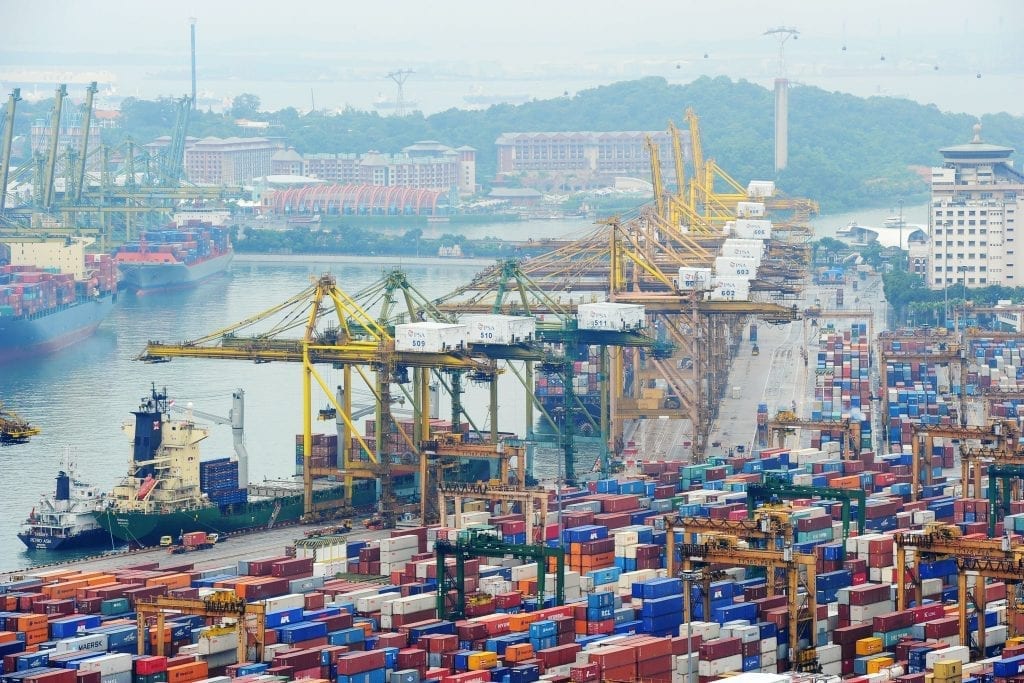
Vice President Jusuf Kalla said Indonesia must impose stricter measures to ensure that dollars earned from exports remain in the country for longer, amid the continuous depreciation of the rupiah, which has been among the worst performers in Asia this year.
The currency has weakened by 6.21 percent against the dollar so far this year, amid a global sell-off of emerging-market assets, triggered by higher US interest rates and a stronger greenback. A weaker rupiah has many negative effects on the nation’s economy, as it increases the cost of imports, while raising the interest burden on public- and private-sector foreign debt.
In a discussion in Jakarta on Thursday (02/08), Kalla criticized Indonesia’s existing free-floating foreign-exchange regime, which has made the country highly dependent on capital inflows, particularly in the short run. He highlighted the fact that under current laws, regulators are powerless to force exporters to keep their earnings onshore for longer.
“There needs to be stronger measures so that foreign-exchange earnings from exports can stay [in the country],” he said, adding that Indonesia adopted very loose foreign-exchange controls, especially in the aftermath of the 1998 Asian financial crisis.
The vice president cited as an example Thailand, which has implemented a strict foreign-exchange regime that requires export proceeds to stay in the country’s financial system for at least six months. He believes such a policy could help boost Indonesia’s supply of foreign exchange.
However, Bank Indonesia Governor Perry Warjiyo made it clear last month that the central bank has no intention to impose tougher regulations that would force exporters to keep their dollars in the country for longer. Under current laws, the monetary authority is independent from the executive.
The central bank has been using a mix of policies aimed at tightening its monetary policy. This includes raising its benchmark policy rate three times since mid-May to 5.25 percent and introducing new a benchmark interest rate in the country’s overnight interbank money market to boost the reliability of reference rates.
Biodiesel
Indonesia has been susceptible to capital outflows as it is one of a few emerging markets in Asia that run current-account deficits. The country’s financial markets are also still very shallow and lack product diversity, while on the other hand, the government runs a budget deficit, which adds to a greater reliance on foreign funds to help stimulate the economy.
The government has taken various measures within its jurisdiction to reduce the current-account deficit, including a policy that will make the use of biodiesel-blended fuels mandatory for vehicles and heavy machinery from Sept. 1. This program is expected could save billions of dollars in diesel imports.
Kalla also highlighted the government’s efforts to improve exports and reduce imports. He said the palm oil industry received particularly close scrutiny because it is the country’s greatest source of foreign exchange.
The European Parliament agreed in June to extend its deadline on phasing out the use of palm oil as biodiesel in the bloc to 2030 from 2021. This means biofuels from Indonesia, the world’s largest palm oil producer, will still enter the European market for the next 12 years, instead of three years as was the case under the previous deadline.
“We were forced to threaten European countries by saying we would stop buying Airbus. After that, their ambassadors came to clarify, so their policy to stop the use of palm oil is delayed until 2030,” Kalla said.
Lion Air, Indonesia’s largest low-cost carrier, ordered 234 aircraft worth $23.8 billion from France-based Airbus in 2013 – the biggest order in the aircraft producer’s history.

